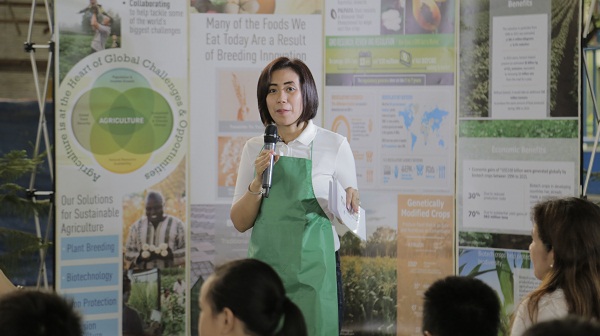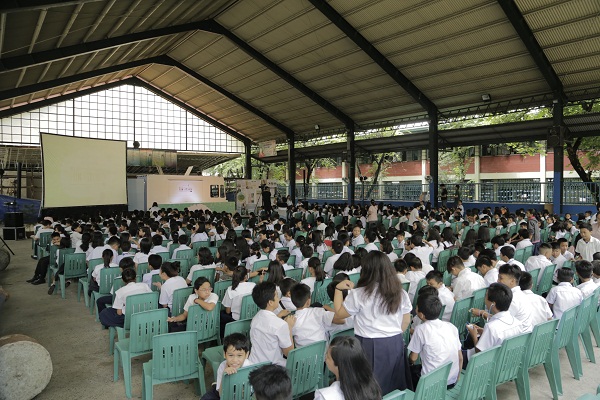Monsanto Philippines recently underscored the relevance of biotechnology in promoting nutrition among Filipinos, especially among younger students. This was shared by Monsanto Corporate Affairs Lead Charina Garrido-Ocampo during a media briefing in Quezon City.
During the launch of its educational roadshow dubbed as Monsanto Fun Kitchen, Ocampo shared that despite efforts to improve nutrition in the country, making balanced meal accessible remains a challenge.

According to latest data by the Food and Nutrition Research Institute of the Department of Science and Technology (FNRI-DOST), the chronic malnutrition rate among children aged 0-2 was at 26.2% – the highest in 10 years while stunting rate for children under 5 was at 33.5%. The same data found that those who are stunted the first two years of their lives would tend to drop out of schools or repeat their levels.
“Everyone deserves a balanced plate. As an agriculture company, we particularly see biotechnology as a novel approach in producing high yield and nutritious produce.Through biotechnology, we’ve developed seed variants that local farmers can grow to provide Filipinos with the valuable vitamins and nutrients they need,” Ocampo shared during her opening remarks at the launch.

In order to spur public awareness and action on malnutrition, the company led the launch of its Monsanto Fun Kitchen to over 500 Grade 6 students, including parents and faculty members, at Project 6 Special Science Elementary School in Barangay Pag-asa. Hosted by Monsanto’s Supply Chain Lead Erwin Vibal and Regulatory Affairs Lead Shemaine Castillo, the initiative demonstrated to children the role of biotechnology in farming nutritious food, while teaching parents and children easy-to-cook and healthy recipes that can be easily replicated in their homes.
Castillo explained during the program that biotechnology is applied in breeding new crops.She shared that applying biotechnology in agriculture protects crops such as corn, lettuce and tomatoes from pests and diseases, which in turn allows farmers to have better yield.“We use biotechnology to develop new varieties of plant seeds with a range of desirable characteristics, such as being able to resist certain insects or harsh weather conditions.”

Castillo shared that among other biotech crops, corn is the first GM crop to be planted in the Philippines.
Ocampo said that after the activity, Monsanto plans to replicate this to different areas in the country to further expand awareness on the benefits of biotechnology and share practices on cooking nutritious meal.

